An episode that Anne'-swers all your questions!
Here’s what’s in store for today’s episode:
We kick off this episode by diving into autism misdiagnoses and the controversy surrounding Kanye West.
We explore how neurotypical stigmas surrounding autism contribute to misdiagnoses, leading to misunderstandings, overlooked diagnoses, and incorrect labels that impact autistic individuals' lives.
Autistic people are often the best at recognizing and diagnosing other autistic people—real recognize real.
We then dive into the heart of our episode—Anne of Green Gables—and explore how this beloved story is delightfully autistic in all the best ways.
Anne, our protagonist, is the quintessential outsider—she doesn’t fit in and doesn’t care to. Sound familiar?
Anne Shirley is constantly told she's 'too much'—too talkative, too dramatic, too imaginative, and always just a little outside the norm
The original Anne of Green Gables was written in 1908, during the Industrial Revolution—an era of chaotic transition for many, including autistic individuals, who were beginning to adjust to life in a rapidly changing capitalist society.
A lot of autistic people are drawn to turn-of-the-century fiction, like Anne of Green Gables or Little House on the Prairie, because it evokes a time when life felt less complex and the world seemed more predictable.
Anne Shirley is an orphan, and many autistic people can relate to that feeling of being an outsider or disconnected, much like the concept of Wrong Planet Syndrome that Angela discusses—where autistic individuals feel as though they’re from a different world entirely.
The book experienced massive critical and commercial success over the years, spawning sequels, a Disney movie, an anime adaptation, and more.
Anne of Green Gables holds a huge cultural impact and status in Japan, a country that embodies many facets of autistic culture, from its deep appreciation for routine and order to its rich traditions of storytelling and introspection.
We discuss Anne's author, Lucy Maud Montgomery, and how she based the character of Anne on her own life, highlighting the autistic-coded traits that are reflected in Anne's personality and experiences.
In addition, we also analyze some of Anne's inherently autistic traits, like her use of echolalia, infodumping, and her intense "spins"—those passionate, often over-the-top moments where she loses herself in her thoughts and imagination.
Matt and Angela dive into the concept of internalized ableism, exploring how it often takes significantly more effort and output for autistic people to achieve success, as they navigate societal expectations that aren’t built for neurodivergent minds.
We discuss how unschooling often gets bad PR, while also examining how factory schools were created during the Industrial Revolution to train students to work for 8 hours a day in factories, shaping the education system we know today.
Next, we explore the neurodivergent friendship dynamics in the series, such as the unique bond between Anne and Gilbert, which is built on an intellectual connection with little to no small talk, showcasing other neurodivergent tendencies like deep, focused conversation and mutual understanding.
Additionally, talk about the importance of echolalia and neurodivergent-coded language processing in Anne’s character and how it shapes her communication style.
Autistic people have a different structure of language; we use the same words but approach concepts in unique ways. When we communicate with other autistic people, there’s a shared understanding that transcends typical language norms.
We talk about Anne’s physical stimming and how people in her town of Avonlea were not pleased with it, often misunderstanding or criticizing her behavior.
Anne has sensory issues aplenty, including ones that influence her choice of dress and what she wears, highlighting her sensitivity to certain fabrics and styles.
Finally, we touch on how Anne struggles with masking and is constantly pressured to fit in, highlighting the challenges of trying to conform to societal expectations while staying true to herself.
“This is the thing - the people who are good at diagnosing autism might not be as neurotypical as they think they are. The neurotypicals tend to be very bad at diagnosing autism.” - Matt
“When I picture Anne of Green Gables, I picture her surrounded by Kermit the Frog dressed as Clark Gable.” - Matt
“It’s all very well to read about sorrows and imagine yourself living through them heroically - but it’s not so nice when you really come to have them, is it?” - Anne Shirley
“There’s such a lot of different ands in me. I sometimes think that is why I’m such a troublesome person.” - Anne Shirley
“I have always lived in a world of imagination; I kept it shut up within myself for fear of ridicule.” - Lucy Maud Montgomery
“This is why we get thrown into ‘social skills groups’ and ‘social skills training’ - because neurotypicals want us to be like them instead of acknowledging that we are different and accepting our differences because it’s colonization bullshit.” - Matt
Did you enjoy this episode? We dive into the neurodivergent themes in Anne of Green Gables, exploring Anne's traits, sensory issues, and the challenges she faces in Avonlea. We discuss how her unique communication style and physical stimming set her apart, while also reflecting on how society views neurodivergence. In the comments, let us know what resonated with you, and use #AutisticCultureCatch to share your thoughts on social media and connect with other listeners!
Show Notes:
Reddit Discussion: Anne Shirley—Anne of Green Gables and Autism
A Reddit thread where users discuss the possibility of Anne Shirley being autistic, citing her creativity, emotional experiences, and social interactions.
https://www.reddit.com/r/FanTheories/comments/w1om6v/anne_shirleyanne_of_green_gables_and_autism/
YouTube Video: Autism in Anne of Green Gables
A video analysis exploring the autistic traits of major characters in Anne of Green Gables.
Article: Autistic-Coded TV and Film Characters
An article that includes Anne Shirley-Cuthbert from Anne with an E among characters interpreted as autistic-coded.
https://thewyrdsisters.co.uk/autistic-coded-characters/
Medium Article: Characters That Ping Our NeuroScopes
A piece discussing various characters, including Anne Shirley, who exhibit traits that resonate with neurodivergent experiences.
https://medium.com/@autisticlouzanna/characters-that-ping-our-neuroscopes-2c42437410ef
PubMed Article: Lucy Maude Montgomery and Anne of Green Gables: An Early Description of Attention-Deficit/Hyperactivity Disorder
An academic article analyzing Anne Shirley’s behaviors in the context of ADHD, which shares overlapping traits with autism.
https://pubmed.ncbi.nlm.nih.gov/28697270/
Facebook Post by Kristy Forbes—Autism & ND Support
A post discussing the portrayal of Anne in the series Anne with an E, highlighting traits that may align with autism.
https://www.facebook.com/inTunePathways/posts/recently-i-started-watching-anne-with-an-e-its-a-series-based-on-the-novel-by-lu/985985522010541/
Related Episodes:
Dimensions of Autistic Culture
Follow us on Instagram
Find us on Apple Podcasts and Spotify
Learn more about Angela at AngelaKingdon.com
Our Autism-affirming merch shop


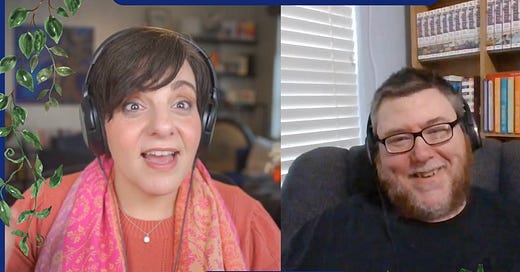
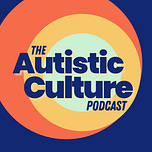



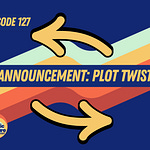
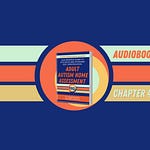
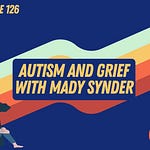
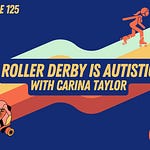

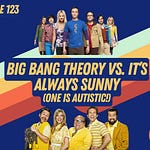
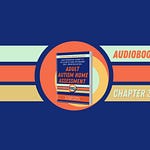

Share this post